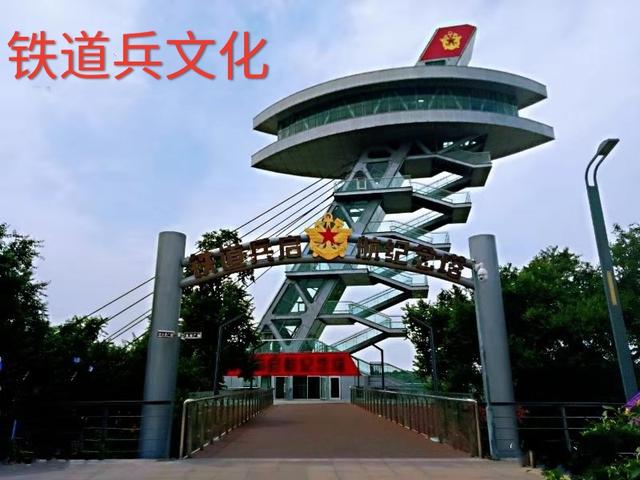
Chief of the Railway Corps - Political Commissar Cui Tianmin (Part 1)
Mei Zixiang 2017-04-28 00:24
March 2 marks the 105th birthday of Choi Tin Min, former political commissar of the Railway Corps. I would like to write a nostalgic article on the available material. There are three reasons: First, in the railway soldier literature I have collected, Commissar Cui is relatively large, which is related to the long time he has served as the leader of the railway soldier. The information includes photos, instructions, etc.; In that special era, Commissar Cui showed a firm political stance in handling some incidents, with flexible tactics and humanitarian feelings. 2. The Railway Soldier Memorial Hall collected cultural relics materials, and his children presented to the memorial hall the precious lieutenant general's dress and other cultural relics; China Railway Construction held a donation ceremony, and Cui Yuxi, daughter of Political Commissar Cui, made a speech on behalf of the donors on behalf of the donors. Third, the children of Commissar Cui have a strong feeling of railway soldiers, and in the early years, his eldest son Cui Shilin had asked for a CD-ROM of the song "Railway Soldiers Are In the Four Directions" from many sources; Cui Weihua, the daughter of Commissar Cui, went to establish WeChat contacts with me, often sending me information on the content of the railway soldiers, and forwarding a large number of articles on the content of the railway soldiers I wrote. is the preamble.
Cui Tian's family donated lieutenant general dresses to the Railway Soldier Memorial Hall
When commemorating the 80th anniversary of the victory of the Red Army's Long March, I wrote an article entitled "We are the team led by the Red Army." Among the successive commanders and political commissars of the railway troops, except for Huang Yifeng, the first director of the railway column, and Lü Zhengcao, the political commissar of the railway troops, all of them were cadres of the Red Army, and The political commissar Cui was the only Red Army in northern Shaanxi.
Cui Tianmin is a native of Suide County, Shaanxi Province. There is a saying that "the mother-in-law of the rice fat Suide's Han" is that the woman of the rice fat is beautiful and the man of suide is handsome. Look at commissar Cui's photo of his military uniform, and you will know what kind of a heroic warrior he is!
(Group photo of some leaders of the Hebei Luyu Detachment of the Eighth Route Army in May 1940.) From left: Chang Binggui, Liu Zhen, Yang Dezhi, Wu Xinquan, Lu Shaowu, Cui Tianmin, Li Xuesan, Qin Jian)
He was born in 1912 to a poor peasant family. At the height of the revolution in 1927, the Communist Party was suppressed, and at the age of 15 he attended primary school and joined the Youth League, becoming a Communist Party the following year. During the agrarian revolution, he was one of the main leaders who founded the revolutionary base areas in northern Shaanxi and served as vice chairman of the Soviet government in northern Shaanxi. With the ideal of creating a happy life for the poor people, he rebuilt the first detachment of the Red Army guerrillas in northern Shaanxi, created two detachments, formed the Northern Shaanxi Soviet Government and Soviet power at all levels, and contributed to the establishment of the revolutionary base areas in northern Shaanxi. He served as the political commissar of the 78th Division of the Red 15th Army, leading his troops to participate in the Battle of Zhangcunyi, the Battle of Zhiluo Town, and the Battles of the Eastern Expedition, the Western Expedition, and the Battle of Shan Castle. In the War of Resistance Against Japanese Aggression, he served as the director of the Political Office of the 687th Regiment of the 344th Brigade of the 115th Division of the Eighth Route Army, the political commissar and commander of the Regiment, the political commissar and commander of the Jiluyu Military Region, and led his troops to participate in the famous Battle of Pingxingguan and the Anti-"Nine-Way Siege" of Zhangnan. In February 1939, together with Yang Dezhi, he formed the Jiluyu Detachment, which played an important role in creating the anti-Japanese base area in the Jiluyu Border Region. During the Liberation War, he served as the director of the political department of the first column of the Jinji-Hebei Luyu Column, the director of the political department of the Southern Hebei Military Region, and led the troops to participate in the Battle of Handan, and participated in the command of the battles of Rehe Pingquan, Southwest Lutaiji, and Cao County. During his work at the Party School of the North China Bureau and the North China People's Revolutionary University, he trained and sent a number of leading cadres at the district and prefecture levels to the newly liberated areas, and was praised by the Party Central Committee.
Cui Tian Civil Affairs Committee wrote an inscription for the railway soldiers
In September 1949, Cui Tianmin was appointed deputy political commissar of the Railway Corps, and later deputy political commissar, political commissar and adviser of the Railway Corps. Until 1978, he left the Railway Corps to serve in the Second Artillery Corps.
With a history of 35 years, Commissar Cui has worked for the Railway Corps for nearly thirty years. He was one of the three chiefs who served as the chief leader of the Railroad Corps for the longest time. He is a witness and witness to the history of the railway soldiers. His history is a microcosm of the glorious history of railway soldiers from birth, development to growth.
Qingming Festival, WeChat video of Commissar Cui's family
EDIT: Have fun